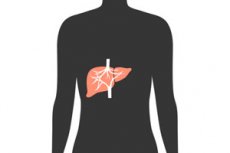
Organ transplantation is a pressing issue because it could save many lives. The problem is that there are not enough organs, and if they exist, they are not always compatible: for a correct transplant it is important to take into account not only anatomical, but also biochemical parameters. In this case, immune compatibility is of greatest importance so that the transplant is not rejected in another organism. Almost all living structures have their own set of molecules, according to which the immune system distinguishes its cells from “strangers”. This mechanism is important, in particular, for combating infectious or tumor processes. However, in terms of transplantation, it plays an undesirable role.
With active biotechnological development, it became possible to use animals for organ transplantation, in particular pigs. The size and physiological indicators of such organs are almost the same, and scientists have long been dealing with genetic characteristics using methods of cellular technologies and genetic editing. Such methods are being introduced gradually. Trials have already been carried out on the transplantation of organ modifications into macaques, and now the time has come to involve people.
The first experiments have already been performed on patients who were in a state of clinical death. Their brain structures no longer worked, and there was no hope of survival. One of these patients received a six-fold modified pig liver transplant. At the same time, the person did not remove his own liver, but only added a pork one. For ten days after accession, no rejection reactions were noted: the pig’s organ successfully coped with its function and produced approximately 30 ml of bile daily. Soon, scientists plan to conduct a repeat experiment, but with a complete liver transplantation. The human organ will be removed and replaced with a pig one.
Today, experts are not sure that pig organ transplantation can be performed on a permanent basis. Most likely, the operation will be temporary: the liver will be transplanted for a certain period of time, in order to subsequently be able to select a suitable human organ. But, be that as it may, such operations are a major breakthrough in medicine and transplantology: an animal organ was transferred to the human body, which fully accepted it, both anatomically and functionally.
By the way, almost during the same period of time, scientists performed an operation to transplant a modified pig kidney into a person. True, in this case there were significantly more modifications - more than sixty. As long as the recipient’s body functions normally: the transplanted organ works successfully, rejection is not recorded. Experts are already making good forecasts. The graft is expected to function without failure for at least a couple of years.
Previously, scientists tried to transplant a pig's heart, but were unsuccessful. It is unknown whether such experiments will continue.
Read more about the research on the Nature journal page

